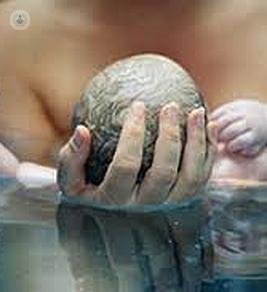What are the benefits and risks provides the water birth?
Written by:Attention to water delivery is an alternative to the traditional technique and, currently, a real demand among some pregnant women. Given this demand, and especially in the face of so much discussion on the subject, the Spanish Society of Gynecology and Obstetrics has developed in collaboration with the Spanish Society of Neonatology a consensus document.
 Both organizations conclude that:
Both organizations conclude that:
1. The assistance during the period of dilation in the water supposes a smaller utilization of the epidural anesthesia.
2. The attention at the time of expelling the child in the water supposes a greater satisfaction with the traditional birth in the mothers and no advantage for the newborn.
3. Research on the subject has major limitations; have been few and are not well designed, so that they do not provide sufficient reliability in their conclusions (from the point of view of the scientific societies discussed above).
4. It is complex to establish the incidence of maternal and fetal complications in this kind of delivery. Currently, there are few examples of situations such as neonatal sepsis, infection of the blood that appears in a baby of less than 90 days of age; difficulties in thermoregulation, hypovolemic shock due to umbilical cord rupture, difficulty in breathing of the child born by water aspiration and corresponding cerebral alteration of the born.
Under normal conditions, the newborn when exiting the water does not aspire to the existence of the diving reflex. However, this spontaneous action is lost if it is a situation of loss of fetal well-being and it is easy to try to breathe while being submerged, with the complications of drowning that this implies.
Advantages of childbirth in water
 The advantages of this type of delivery attention are mainly focused on maternal satisfaction. However, it is important to provide women with objective, detailed information based on real and concrete data so that they are aware of the risks of this practice.
The advantages of this type of delivery attention are mainly focused on maternal satisfaction. However, it is important to provide women with objective, detailed information based on real and concrete data so that they are aware of the risks of this practice.
Although there is respect for autonomy and freedom of choice on the part of the mother and the father, these have as limit the safety of the newborn. At present, given the lack of scientific evidence that delivery in water provides any benefit and the absence of conclusive data on the safety of the newborn, as well as the existence of clinical cases with serious complications and fatal evolution, it is recommended this form of delivery assistance only in the case of a controlled clinical trial.



